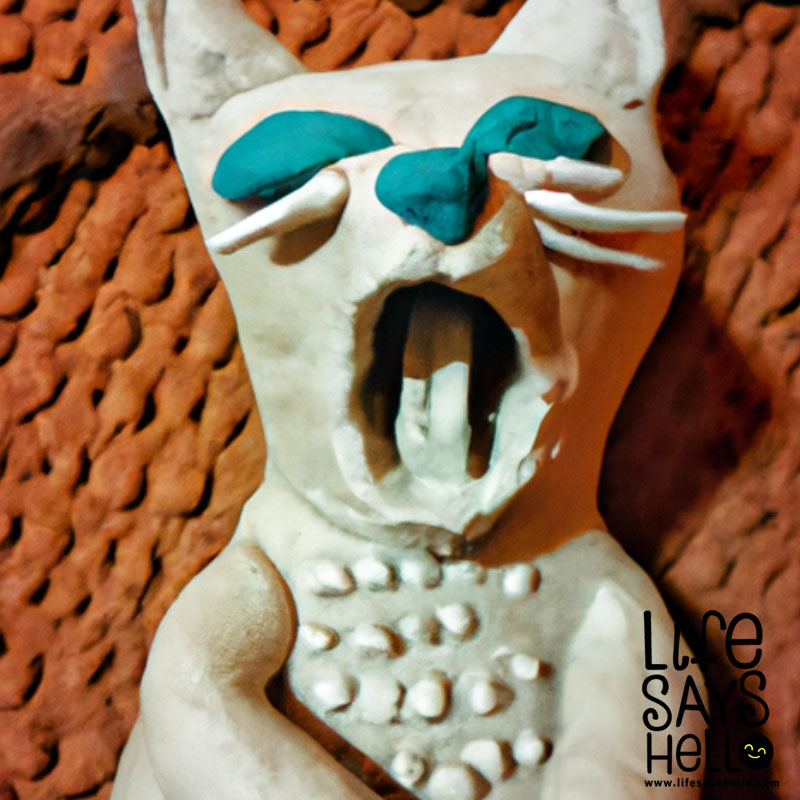Why Is My Cat Dry Heaving? Understanding the Causes, Symptoms, and Solutions for Your Feline Friend

As a cat owner, it can be quite concerning to see your furry friend dry heaving. While it might not be an immediate cause for alarm, it's essential to understand the reasons behind this behavior and learn how to help your cat. In this comprehensive guide, we'll explore the causes, symptoms, and solutions for dry heaving in cats, ensuring you have all the information you need to keep your feline companion healthy and happy.
Cats are known for their mysterious and sometimes perplexing behaviors, and dry heaving is no exception. If you've ever witnessed your cat retching without producing any vomit, you might have wondered what's going on and whether it's something to worry about. While dry heaving can be a sign of an underlying issue, it's important to remember that it can also be a normal part of a cat's life. In this article, we'll delve into the world of cat dry heaving, examining its causes, symptoms, and potential solutions, so you can better understand and care for your feline friend.
What is Dry Heaving in Cats?
Before we can explore the reasons behind cat dry heaving, it's important to understand what it actually is. Dry heaving, also known as retching or gagging, occurs when a cat attempts to vomit but doesn't produce any vomit in the process. This can be a one-time occurrence or happen frequently, depending on the cause.
It's essential to differentiate between dry heaving and vomiting, as they can indicate different issues. While vomiting involves the expulsion of stomach contents, dry heaving is more like a cough or gag reflex without any material being expelled. Understanding this distinction can help you better identify the problem and seek appropriate solutions.
Causes of Dry Heaving in Cats
There are several potential reasons why your cat might be dry heaving. Some of these causes are more common and less concerning, while others might require more immediate attention. Here, we'll discuss some of the most common causes of dry heaving in cats:
Hairballs
One of the most common causes of dry heaving in cats is the presence of hairballs. As cats groom themselves, they ingest loose hair, which can accumulate in their stomachs and form hairballs. When a cat tries to expel a hairball, they might dry heave, especially if the hairball is too large or difficult to pass. While hairballs are a normal part of a cat's life, excessive hairball production can lead to more serious issues, such as intestinal blockages.
Ingestion of Foreign Objects
Cats are curious creatures, and sometimes their curiosity can lead them to ingest foreign objects, such as string, plastic, or small toys. If your cat has swallowed something they shouldn't have, they might dry heave as their body attempts to expel the object. In some cases, this can be a serious issue, especially if the foreign object becomes lodged in their digestive system and causes a blockage.
Upper Respiratory Infections
Upper respiratory infections, such as feline herpesvirus or feline calicivirus, can cause a range of symptoms in cats, including dry heaving. These infections can lead to inflammation and irritation in the throat, making it difficult for your cat to swallow and causing them to retch or gag. If your cat is showing other signs of an upper respiratory infection, such as sneezing, nasal discharge, or eye discharge, it's important to consult your veterinarian for proper diagnosis and treatment.
Gastrointestinal Issues
Various gastrointestinal issues, such as gastritis, inflammatory bowel disease, or gastroenteritis, can cause dry heaving in cats. These conditions can lead to inflammation and irritation in the stomach and intestines, making it difficult for your cat to digest food and causing them to retch or gag. If you suspect your cat might be suffering from a gastrointestinal issue, it's important to consult your veterinarian for proper diagnosis and treatment.
Dehydration
Dehydration can be another cause of dry heaving in cats. When a cat becomes dehydrated, their body might attempt to expel any remaining stomach contents, leading to retching or gagging. Ensuring your cat has access to fresh water and stays properly hydrated is essential for preventing this issue.
Anxiety and Stress
Cats can also experience dry heaving as a result of anxiety or stress. If your cat is feeling anxious or stressed, they might retch or gag as a physical manifestation of their emotional state. Identifying and addressing the source of your cat's anxiety or stress can help alleviate this issue.
Symptoms of Dry Heaving in Cats
In addition to retching without producing vomit, there are several other symptoms that might accompany dry heaving in cats. These can include:
- Gagging and coughing
- Lethargy
- Loss of appetite
- Excessive drooling
- Changes in behavior, such as hiding or increased vocalization
It's important to monitor your cat for these symptoms, as they can help you determine whether your cat's dry heaving is a cause for concern or simply a normal part of their life.
When to See a Vet
While occasional dry heaving might not be a cause for alarm, it's important to know when to consult your veterinarian. If your cat is experiencing any of the following warning signs, it's time to seek professional help:
- Persistent or frequent dry heaving, especially if it's accompanied by other symptoms
- Signs of pain or distress, such as crying or hunching over
- Difficulty breathing or rapid breathing
- Pale or blue gums
- Blood in their vomit or stool
These signs can indicate a more serious issue that requires immediate attention, so don't hesitate to contact your veterinarian if you notice any of them.
Home Remedies and Prevention
There are several steps you can take at home to help alleviate your cat's dry heaving and prevent it from occurring in the future. These include:
Regular Grooming
Regular grooming can help minimize hairball formation, as it removes loose hair before your cat has a chance to ingest it. Brush your cat daily or at least several times a week, depending on their coat type and shedding habits. This can help reduce the likelihood of your cat dry heaving due to hairballs.
Providing a Stress-Free Environment
Creating a calm and stress-free environment for your cat can help prevent dry heaving caused by anxiety or stress. Make sure your cat has a safe and quiet space to retreat to, and try to minimize loud noises and sudden changes in their environment. You can also consider using pheromone diffusers or calming supplements to help keep your cat relaxed.
Ensuring Proper Hydration
Keeping your cat properly hydrated is essential for preventing dehydration-related dry heaving. Make sure your cat has access to fresh water at all times, and consider using a water fountain to encourage them to drink more. You can also try feeding your cat wet food, which has a higher water content, to help maintain their hydration levels.
Monitoring Your Cat's Diet
Feeding your cat a high-quality and easily digestible diet can help prevent gastrointestinal issues that might lead to dry heaving. Avoid feeding your cat table scraps or foods that might irritate their stomach, and consult your veterinarian for recommendations on the best diet for your cat's specific needs.
Regular Check-Ups
Taking your cat for regular check-ups with your veterinarian can help catch any potential health issues before they become more serious. Your vet can also provide guidance on how to prevent dry heaving and other health concerns specific to your cat's needs.
Conclusion
Understanding the causes, symptoms, and solutions for cat dry heaving is essential for keeping your feline friend healthy and happy. By being proactive in monitoring your cat's health and seeking professional help when needed, you can help ensure your cat lives a comfortable and content life. Remember, your cat relies on you to be their advocate, so don't hesitate to reach out to your veterinarian if you have any concerns about their well-being.




Comments